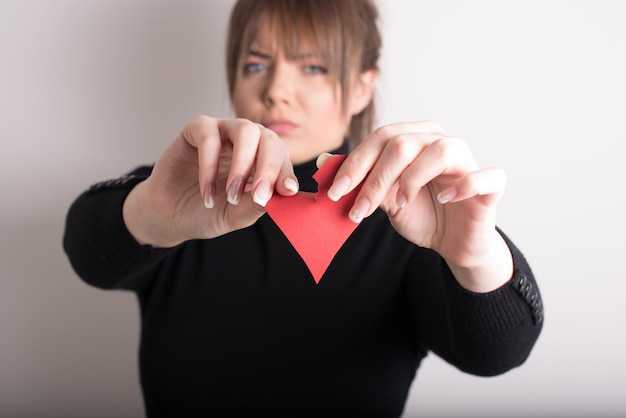I didn’t realize for a long time that I was trapped in a toxic partnership. Looking back, I couldn’t tell which warning signs deserved my attention and which positive indicators needed to be present for the relationship to actually thrive. That misunderstanding cost me years and a lot of needless suffering. When someone calls you “crazy” often enough, it’s easy to start believing them. If you’re repeatedly positioned as the problem, silence often feels safer than arguing or provoking another fight. They say it so convincingly that you begin to wonder if there’s some truth to it. So you read every self-help book, watch every video, try to reflect and take responsibility. You apologize first more often than not. You learn new ways to communicate, hoping that if you do everything right you won’t set them off, because you desperately want the relationship to work. But here’s the crucial question: do they want the relationship to work? Is mutual growth and honest self-reflection part of their agenda, or do they dismiss those things as pointless because, in their view, only you need to change? This matters because no matter how much you improve, you cannot fix someone else’s anger issues or force them to become accountable. Without careful attention, it’s possible to remain stuck in relationships where you sense something’s off and you know you deserve better — yet leaving feels impossible. That was my experience. Toxic relationships rob us of many things, including our trust in ourselves. We stop knowing what needs feel reasonable, what boundaries we can set without being selfish, or what we can ask for without being “difficult.” When we finally speak up, our feelings get dismissed or minimized. We’re labeled as too sensitive, too dramatic, or the source of the trouble, which leads to constant second-guessing, rumination, and anxiety. I want to unpack those patterns with you, to offer compassion and patience you might not be showing yourself — and also to hold you accountable. I want to remind you what a loving partnership should look like, and help you honestly ask: is this love, or am I caught in a trauma bond? If anything here resonates, consider bringing it to a trusted counselor. And if you believe you’re in an abusive situation, the priority is not learning better communication or establishing boundaries first — the first step is to get safe and get away.
So, what is a trauma bond? It’s a powerful, unhealthy attachment that develops between two people in a dysfunctional, often abusive relationship. Typically, one partner behaves manipulatively, controlling, or abusive, and the other feels unable to leave because of emotional dependence, deep fears of abandonment or loneliness, or misplaced loyalty, even in the face of mistreatment. I used to think trauma bonds only formed from shared traumatic histories — that perhaps both partners grew up in neglectful or abusive homes and connected over that pain. That can be a factor, but it doesn’t capture the whole picture. More fully, a trauma bond stems from a repeating cycle: intermittent abuse or mistreatment followed by generous, reinforcing affection. One moment you are hurt and belittled; then they switch to intense attention and praise — love-bombing, promises of a future together, or even partial acknowledgments of past wrongs — only to fall back into demeaning behavior again. To outsiders that may look irrational: why stay with someone who hurts you? The answer is both simple and complex. Victims often stay because the abuse is sporadic enough to keep them disoriented in the present and hopeful about the future. We are not blaming victims — sometimes the pattern continues because people simply don’t know what healthy love feels like. Perhaps you grew up amid chaos, where affection was unpredictable; perhaps love felt conditional, something you had to earn. Maybe your childhood included violence, blame, or emotional volatility; maybe adults in your life would explode and then act as if nothing had happened, and apologies or accountability were rare. So while others might see the toxic pattern and decide to leave, your subconscious can interpret it as “this is just how love works.” You tell yourself, “No relationship is perfect, I love them, and what if leaving is a mistake?” But the reality is you can feel lonelier inside a toxic relationship — unloved and unimportant — than you would alone. What exists in those situations is not love but survival: your nervous system finds a perverse kind of safety in the unpredictability. The highs and lows become familiar, and our brains typically prefer the known over the unknown, even when the unknown would be healthier.
One sign of a trauma bond is that leaving feels impossible even though staying is destroying you. For me, it felt like an addiction: the ecstatic highs were intoxicating and the crashes were devastating, but I learned to wait for the next peak. When the relationship hit a low — brutal fights or cruel words — and then we reconciled, it was easy to misinterpret that reunion as deeper bonding, as if we had “survived” something together. But that is not connection; it’s chaos disguised as intimacy. Those conflicts were not shared trials you both endured equally — they were wounds inflicted upon you that could have been avoided. The abuser didn’t suffer alongside you; they caused the suffering. Another cruel twist is that even if they harmed you, you may still not wish them harm. That unwillingness to hurt them becomes leverage for the abuser. I wanted to give what I felt I lacked in childhood: unconditional acceptance and steadfast devotion. I believed if I loved them enough and stayed consistent and kind, I could be their anchor and help them heal. I told myself that if I could “save” them, they would finally love and prioritize me. But most people who are toxic are not seeking to be saved. They view your healthy traits as a threat because growth would require admitting flaws. Instead of recognizing their need to change, they project shame onto you, hurling the very insults they’re secretly terrified are true about themselves. I would reach a breaking point and resolve to leave, only for them to sense my distance and shift back into a softer, apologetic version of themselves. They’d offer the closeness and apology I craved, or they’d shame themselves into a spiral and beg me to stay, and my abandonment fears would flip me back into caretaking mode. I would soothe and reassure them rather than assert what I needed, and the cycle would continue. Therapists explain one reason these dynamics are hard to break is that we unconsciously repeat childhood wounds, hoping this time to “fix” them. As children, we were dependent on caregivers whether they were healthy or not, and sometimes as adults we recreate similar attachments hoping to finally receive the love we missed. We think that healing this current relationship will retroactively heal the past, but instead we often just set ourselves up to be hurt again. The hard but vital reminder is that you are not a child anymore. You do not have to self-abandon to avoid being abandoned. You can be whole and safe on your own and choose to welcome someone into your life — you do not owe your presence to relationships that are unhealthy or dangerous. It’s difficult, but necessary.
Another red flag is the double standard: you would never get away with treating them the way they treat you. Imagine returning their behavior in kind — interrupting, speaking down to them, mocking their feelings, flirting with others the way they do, dismissing their concerns. What would they call you? You cannot experience safety and love in a relationship without equality and mutual respect. Trauma-bonded relationships often entail a power imbalance: they hold the power and you’re expected to comply. They impose standards that they themselves do not follow. You deserve genuine love — not manipulation — and you deserve to feel safe, seen, and cherished. You are not “too needy” or “too sensitive.” You deserve someone who values you, elevates you, admires and appreciates you, and who actively asks how to make you feel loved because your experience matters. You are entitled to a partner who is as committed to hearing and understanding your pain as they are to expressing their own feelings without making you feel blamed. Believe that: you are worthy of kindness and respect. Emotional abuse can be subtle and difficult to identify, but its aim is control and manipulation. When someone gaslights you, consistently blames or belittles you, humiliates you, or constantly criticizes you without making real repair, that’s emotional abuse. Phrases like “You’re too sensitive,” “That didn’t happen,” “You’re crazy,” “You’re the problem,” “You’ll never see your kids again if you leave,” “If you won’t let me check your phone, you’re admitting to cheating,” or “I’ll hurt myself if you leave me” are not harmless words — they are tools of control. Hearing things like that consistently leaves people feeling bewildered, ashamed, anxious, and heartbroken. You may find yourself asking if you are the problem, feeling alone and powerless. But you are not powerless; you are stuck, and you can get unstuck. Persistent verbal abuse without accountability is abuse, plain and simple, even if it comes in the form of words rather than physical harm. Professionals will agree. When you hear these things and internalize them, you may stop insisting on boundaries or caring for your own needs, convincing yourself you are too needy. That fuels a destructive loop where you try to prove your worth and the cycle persists.
A further sign of a trauma bond is carrying all the responsibility for the relationship. Abusive partners often isolate you from friends and family, and when information about their behavior surfaces, you find yourself covering for them so they don’t look bad. You minimize, justify, or make excuses: “Nobody’s perfect,” “They had a tough childhood,” “They’re under pressure.” You do this partly to avoid shame, and partly because it’s easier than admitting how awful it really was. Over time you become an expert on their triggers, walking on eggshells in anticipation of which version of them will show up. You become practiced in communication tricks meant to prevent escalation. You may even misinterpret this caretaking as love or consideration, but it’s actually enabling: taking on emotional labor that belongs to them. You regulate their feelings for them to preserve your own safety and peace, essentially becoming their emotional caretaker. That role can feel meaningful in a twisted way because you may feel indispensable — “without me, they’d fall apart.” But when one person performs the emotional labor of two, the result is not harmony; it’s exhaustion, bitterness, and resentment. You are not responsible for teaching another adult to be mature. Rescuing them from the consequences of their actions tends to reinforce entitlement and narcissism. Stop beating your head against questions about whether they’re a narcissist or avoidant; the label matters less than how the relationship makes you feel. Do you feel valued? Are you treated as an equal? Are your needs acknowledged and respected? If not, the relationship is not sustainable. It’s your responsibility to know you deserve equality, consistency, and care. If you find yourself thinking, “I know this logically, but I can’t leave,” that’s an okay place to be — but it’s not a permanent one. Healing begins when you challenge distorted beliefs like “I can’t leave.” You can leave; the barrier is the panic your body anticipates — fear of being single, of making the wrong choice, or of the guilt when they beg you to stay. Remember: you aren’t abandoning them; you offered chances to repair and heal through books, therapy, and conversation. They chose not to engage. If abuse has been a pattern, another chance rarely changes much because they haven’t demonstrated consistent trustworthiness.
Another major sign is fear of honesty: you’re afraid to assert a boundary or ask for your needs. You may have stopped caring what you need at all because your partner has convinced you you’re selfish, and speaking up only adds fuel to the conflict. But honesty is essential for relationships. Living in that constant state of fear wreaks havoc on your body — high cortisol, insomnia, anxiety, and simmering anger. So you suppress your feelings to keep peace, repeatedly putting their needs above your own and abandoning yourself to avoid abandonment. That pattern breeds resentment, and one day that resentment erupts in an outburst. A toxic partner will weaponize that moment, using your reaction as proof that you’re just as bad and therefore not deserving of better treatment. If you struggle with shame and low self-worth, you are likely to punish yourself for losing control, while the deeper issue — their chronic disregard, belittlement, or neglect — remains unaddressed and unrepaired. You deserve someone who invites your honesty, who encourages your authenticity, and who doesn’t belittle or demean you for sharing feelings that are messy or still forming. You deserve someone who says, “Let’s figure this out together,” instead of shaming you for being human. That person exists. If listening to this brings up shame because you know you deserve more but haven’t set boundaries, give yourself credit: you are trying, and that effort matters. You are retraining old neural pathways, which is brave and difficult work — offer yourself compassion and grace.
The most revealing sign of a trauma bond is that you see the other person both as the cause of your pain and as the only one who can heal it. Trauma bonds confuse because we view the person hurting us as also holding the power to fix it. We chase the way things used to be, even when those memories might be love-bombing designed to secure attachment so the abuse cycle can continue. Once you’re attached, you keep trying because you love them and hope it can be different. But love should be selective: you deserve to invest your deep care in someone who reciprocates safety and steadiness. I also relied on them to validate my worth; I craved external affirmation. Some of that is normal, but it becomes dangerous when another person’s inability to see you as worthy shapes your self-image and priorities. If you’re constantly dropping everything to address their needs and it’s never reciprocated, that teaches you to be of service to be loved — and that external validation can become a trap. I know it can feel easier to keep trying than to give up and face doubt and loneliness. But leaving a toxic relationship where the other person refuses to change is not wasted time. You will not inevitably end up alone or regret stepping away. Often, the real barrier is fear — fear of solitude, of error, of being forgotten or unaccepted. The hardest work is turning that validation inward: meeting your own needs and rediscovering what brings you joy. Refilling your cup is not selfish; it’s essential if you want to be able to give to others in a healthy way. Consider this: if you knew your child would be treated in the same manner you endure, how sick would that make you feel? That child is you. Age does not make that child less deserving of protection or love. We often become so intent on fixing our situation that we forget we would never want someone we love to go through the same thing. If it’s safe to do so, a first step toward repair is demanding to be treated better and learning how to set boundaries and advocate for your needs — but only if the other person demonstrates real willingness to change. You deserve your feelings to be explored and understood, not dismissed. You shouldn’t have to be the only one doing the validating. Your pain must be addressed for the relationship to survive; suppression and false forgiveness only produce distance and bitterness, because trust cannot be rebuilt by pretending everything is fine.
In closing, where you are in this process will vary. This isn’t an invitation to simply label your relationship; it’s a prompt to ask yourself vital questions: Do I feel safe here? Can I be honest and vulnerable? Do I know what I’m allowed to need without feeling selfish? Does my partner care about my feelings and needs? Am I losing myself or am I loving myself? Do I feel constantly confused? These are the questions that matter. Yes, this is hard work — you’re trying to break generational cycles of trauma. That’s enormous and painful, so give yourself immense grace and compassion while also holding yourself to the accountability of doing the inner work. If possible, talk to a professional; everyone needs help at times, and support is crucial. You are not broken or a failure. You are learning to move out of survival mode, and that is progress to be proud of. But making progress doesn’t mean you should remain in harm’s way. Sometimes healing requires removing yourself from the source of your pain. That can be one of the hardest decisions you make, but it can also be the most necessary. You deserve safety, respect, and consistent care — and you deserve to reclaim your life. Thank you for reading. I will be keeping you in my thoughts and hope to connect again soon.


 5 Sinais de que é um Laço Traumático, não Amor">
5 Sinais de que é um Laço Traumático, não Amor">

 Linha do Tempo do Arrependimento de Evitar Ex: O Momento em que Finalmente Atinge">
Linha do Tempo do Arrependimento de Evitar Ex: O Momento em que Finalmente Atinge">
 TOP 5 SINAIS de um Evitativo QUE AINDA TE AMA Mas Está COM MEDO Demais para Dizer | Discurso Motivacional de Mel Robbins">
TOP 5 SINAIS de um Evitativo QUE AINDA TE AMA Mas Está COM MEDO Demais para Dizer | Discurso Motivacional de Mel Robbins">
 Relacionamentos auto-centrados NUNCA prosperam.">
Relacionamentos auto-centrados NUNCA prosperam.">
 Como Evitantes Destroem Silenciosamente Seus Parceiros em Relacionamentos | Estilo de apego evitativo">
Como Evitantes Destroem Silenciosamente Seus Parceiros em Relacionamentos | Estilo de apego evitativo">
 Por que “Apenas Seguir a Corrente” Não É Suficiente Para Dar Significado">
Por que “Apenas Seguir a Corrente” Não É Suficiente Para Dar Significado">
 Complaints vs Criticisms in your Relationship">
Complaints vs Criticisms in your Relationship">
 Faça o Evitativo te Perseguir — Force-os a Quebrar Suas Próprias Regras | Estilo de Apego Evitativo">
Faça o Evitativo te Perseguir — Force-os a Quebrar Suas Próprias Regras | Estilo de Apego Evitativo">
 4 Princípios que Fazem ou Destroem seu Relacionamento!">
4 Princípios que Fazem ou Destroem seu Relacionamento!">
 Agrado Excessivo DESTRÓI Seus Relacionamentos!">
Agrado Excessivo DESTRÓI Seus Relacionamentos!">
 Estratégias para Pessoas com Trauma Alcançarem o Sucesso">
Estratégias para Pessoas com Trauma Alcançarem o Sucesso">